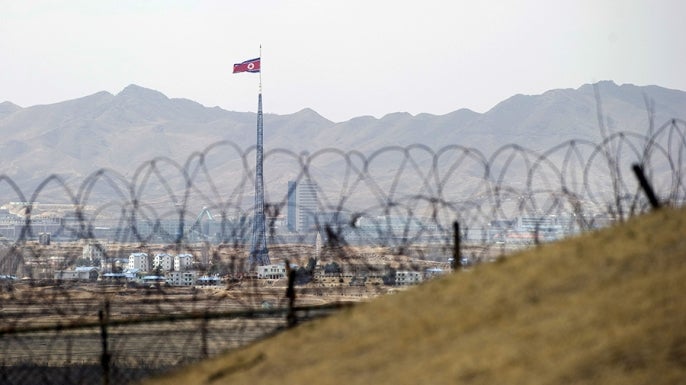South Korea and North Korea are two separate countries that share a deep and complex history. The history of the Korean Peninsula is marked by ancient civilizations, notably the Joseon Dynasty, but took a turn during the Japanese occupation from 1910 to 1945. After World War II, Korea was divided along the 38th parallel, leading to the Korean War (1950–1953), which ended in an armistice and established the demilitarized zone. South Korea embarked on rapid economic development while North Korea adopted a socialist system under the Kim family’s rule. Despite occasional diplomatic efforts and summits, tensions persisted, particularly regarding North Korea’s nuclear ambitions.
Up to now, the relationship between North and South Korea has been characterized by periods of tension and attempts at reconciliation. While the Korean War ended in an armistice in 1953, a formal peace treaty was never signed, leaving the Korean Peninsula technically in a state of war. Over the years, there have been several attempts at reconciliation, marked by high-profile summits and diplomatic engagements. The late 20th century and early 21st century saw moments of thaw, such as the first inter-Korean summit in 2000 between Kim Jong-il and Kim Dae-jung. However, periods of tension, often related to North Korea’s nuclear weapons program, have punctuated these efforts. The leadership changes in both North and South Korea, with Kim Jong-un assuming power in the North and Moon Jae-in in the South, brought a new set of dynamics. While there have been symbolic gestures and agreements, substantive progress on denuclearization and lasting peace has remained elusive.
Efforts toward denuclearization on the Korean Peninsula have been a central point of contention between North Korea and South Korea, as well as the broader international community. North Korea, led by Kim Jong-un, has pursued a nuclear weapons program, conducting multiple nuclear tests and missile launches, which has raised concerns globally. Diplomatic initiatives, including the Six-Party Talks involving North Korea, South Korea, China, the United States, Japan, and Russia, aimed at denuclearization, have faced repeated setbacks. While there have been intermittent moments of diplomatic engagement, agreements such as the Joint Statement of Principles in 2005, progress has often been stymied by issues of trust and geopolitical tensions. Despite inter-Korean summits and declarations expressing a willingness to denuclearize, substantive steps toward complete and verifiable denuclearization have been elusive. The situation remains delicate, with international sanctions and ongoing diplomatic efforts shaping the landscape of the denuclearization discourse on the Korean Peninsula. From the most recent news, North Korea doesn’t seem to have given up on its nuclear arms.
The economic development trajectories of South Korea and North Korea have taken divergent paths since their division after the Korean War. South Korea embarked on a remarkable journey of rapid industrialization and economic growth, transforming from a war-torn nation into an advanced, technology-driven economy. Policies emphasizing export-led growth, education, and innovation played important roles in South Korea’s economic success. On the other hand, North Korea has adopted a state-controlled economy with an emphasis on heavy industry and military priorities. The country has faced international isolation, economic sanctions, and a focus on self-reliance, which has constrained its economic development.
The future of the two countries and their relationship remains uncertain, due to a complex interplay of political, economic, and geopolitical factors. While both Koreas have experienced periods of diplomatic engagement and symbolic gestures, substantive progress on key issues, such as denuclearization and a formal end to the Korean War, has proven unsuccessful. The leadership changes in both North and South Korea, with Kim Jong-un and Yoon Seok-yul at the helm, have brought new dynamics to the inter-Korean relationship. I am interested to see the change in Korea’s relationship with the imminent change in North Korea’s leader.

